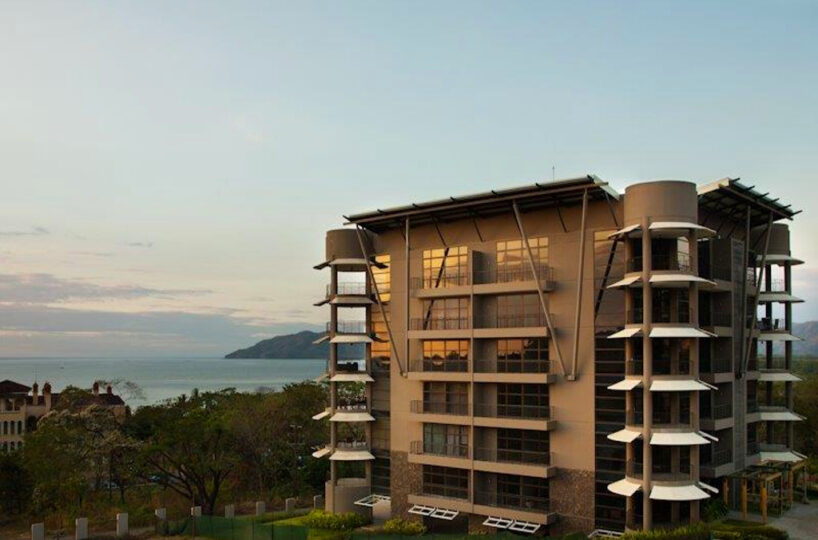If you’re like many property owners, you’re absolutely in love with Costa Rica and you chose to purchase a condo (in the traditional sense) or a single-family home within what Costa Rica calls a “horizontal condominium” for the obvious benefits related to shared expenses, security, access to facilities, consistency of construction, etc.
But if you’re reading this article, you may be experiencing some common challenges that arise when homeowners’ and condominium owners’ associations in Costa Rica are mismanaged, and you’re likely to be a foreign owner (because Ticos generally are aware of their own laws).
We’ll explore the topic in detail…
What Is a Condominium or Homeowner’s Association in Costa Rica?
Many property managers and owners of condominiums don’t even realize that associations are legal entities in Costa Rica. Costa Rica has a whole section of laws on the public books that govern the creation and administration of condominium complexes.
When a condominium is constructed, the developer has to register their plans and get approval for the way in which they will take what used to be a fee-simple piece of land owned by one entity and subdivide it up in a way that will best facilitate harmonious coexistence of multiple owners for an indeterminant amount of time without negatively impacting the surrounding properties and broader community. That process is highly regulated and involves providing architectural plans and surveys that spell out what each “unit” is and then creating a set of specific rules for the community known as “bylaws.”
If you’re a foreigner purchasing real estate in Costa Rica, you probably did so by forming a corporation.
The equivalent of a North American C Corporation is called a Sociedad Anonima or “SA” for short. The ID’s for this type of entity start with 3-101.
During the real estate boom just before the sub-prime mortgage crisis, it became more popular for foreigners to form a Sociedad Responsibilidad Limitada or “SRL,” which is the equivalent of North American LLC and generally more flexible and less onerous to manage. The ID’s for these types of entities start with 3-102.
You’re probably also aware that those corporations have rules written in physical books held by attorneys who have Notary status in the country. They then make changes in those books and register those changes in the Registro Nacional. Each corporation must hold an annual assembly and renew itself and must have “empowered” people registered who can act on its behalf to do things like sign tax declarations, open bank accounts, actually purchase the real estate, etc. in its name.
Fly-by-night property managers who offer HOA or COA management often aren’t even aware that Costa Rican HOA’s and COA’s actually have their own legal entity type. Others choose to ignore the legal entity because it requires long-term thinking and compliance with bylaws.
Associations are registered legal entities with an ID that starts with 3-109 and have similar requirements for maintenance of the legal entity as for-profit corporations.
Each association has at least two critical officers, who hold power of attorney during the period for which they are elected. The first is the President, who is typically a homeowner. The second is the Administrator, who is typically the property management firm, and acts via its leadership team.
Do Costa Rican HOA’s or COA’s Owe Income Taxes?
Many owners who first hear that their mismanaged HOA is actually a legal entity that hasn’t been maintained have a freak-out moment when they find out that there is a legal entity. “Oh, my God, do we owe back taxes?”
Unless there are extraordinary circumstances, the answer is no. As a standalone entity HOAs and COAs are basically a pass-through of expenses. They’re not required to file an income tax declaration and any money on account that is unspent when the next tax period starts is not treated like retained earnings.
For the purposes of the individual units, payments to the HOA or COA are expenses against income, typically derived from vacation rentals or long-term rentals.
Phew…So What’s the Big Deal?
Well, there’s a little problem called bylaws and whether or not what’s happening at the complex has been in compliance or not. When a property manager or group of owners tries to manage the HOA from a legal perspective without knowing what they’re doing, they make normal decisions like setting new dues.
When a complex raises the dues without the HOA meeting being legal, they’re not enforceable.
When the owners come up with a new rule that makes a lot of sense because something has changed, internet becomes available, water restrictions are in force, etc., that’s also not enforceable.
If you happen to an owner in a complex where another owner doesn’t generally do what the broader group thinks needs to happen, you’re out of luck. Even if you have a vote, it can’t be enforced unless the HOA was legally updated and each year, the annual meeting was called in compliance with the bylaws.
So How Do These Laws Get Ignored So Frequently?
Did we mention that you’re likely to be foreign if you’re reading this? It’s not uncommon for condominium complexes to be 100% foreign-owned. Costa Rica is one of the top destinations in the world and Tamarindo and the Gold Coast are a melting pot of different cultures.
So what happens is property managers who don’t know what they’re doing or willfully ignore the law for financial opaqueness and other profit-driven motives are the “elected” property manager and making decisions without any legal right to do so. And then somebody disagrees about something, calls bullshit on the manager and the “vote” of the other owners, and the whole complex gets mired in a toxic battle that can’t be resolved until the complex becomes compliant again.
Signs You Might Be in a Toxic Costa Rica HOA/COA Situation:
- You’re paying way more than you think is reasonable in dues
- You can’t get receipts to hold your property manager financially accountable
- Owners are doing bizarre things in the common areas that detract from the experience of others
- Bills are unpaid
- Needed repairs are not done
- The pool is disgusting
- The garden is overgrown and/or full of weeds
- Security is not managed
- Reviews on VRBO, AirBnB, etc. are getting more and more negative about all units
- The property needs paint
- Shared systems like pumps and elevators don’t work
- The property looks nothing like it did when it was built
- It’s impossible to sell your unit (but it’s not a timeshare!)
Steps to Recover a Costa Rica HOA or COA
1. Get the Legal Books and Bylaws
In some cases, property managers have been so negligent that they have lost the physical books. Those have to be reissued.
The bylaws have to be looked up.
2. Call a Legal Assembly
Costa Rica condo bylaws have a provision for an annual meeting that is always at a certain time of year.
In many toxic HOA situations, the owners can’t wait that long. There is typically a clause that has provisions for calling an “Extraordinary Assembly.” The exact steps in the bylaws have to be followed to call it.
The agenda may be as simple as a legal election of a new President and Administrator.
3. Have a Legal Assembly & Election
The meeting needs to have someone on hand to take the minutes. It’s generally advisable to have an attorney with real estate experience present to help clarify any procedural questions.
They’ll also be the person to officially record the minutes.
After quorum, hold votes on the new officials and any other critical matters.
It’s common in these types of meetings for there to also be a special assessment to resolve emergency maintenance issues.
4. Have the Attorney Record the Results
Costa Rica makes the elected officials of HOAs, COAs that are properly recorded available in the Registro Nacional. It’s important for various entities to be able to ensure that whoever claims to have rights to conduct the business of the condominium actually does.
5. Open a Bank Account in the HOA’s/COA’s Name
In Tamarindo, a common tactic by property managers who don’t want to be held financially accountable is to provide bookkeeping out of QuickBooks or similar but refuse to show bank statements because the HOA’s transactions are intermingled with other individual units in their escrow account. Don’t tolerate that.
As soon as a legal Power of Attorney is available, your new Property Manager should open a checking account in the name of the HOA and start filing digital and paper copies of the bank statements. If the owners are mostly foreign, the account can be in US Dollars. Debit cards should be issued. Costa Rica has a much more developed online banking system for payments than the United States, so many transactions can be achieved via bank transfer to vendors (for $0/transaction within Banco Nacional) or $1 if between banks.
6. Create a Receipts Binder
For utilities, the Costa Rican providers post the bills online and they are paid through a “Convenio” (online portal within Banco Nacional). Each of the payment confirmations needs to be printed. When a vendor is paid, they need to provide a receipt. The owners should review the receipts periodically and audit them against the bank statement and general ledger from the accounting system.
7. Document All Open Issues
On the maintenance side, there are often serious problems that have gone unaddressed for years. Before a “steady-state’ budget can be established, deferred maintenance has to be caught up.
In condominiums with a higher price point, the owners may be more willing to foot the bill all at once to get the property back in shape quickly.
In complexes with lower price points, the owners may choose to recover the property more slowly to keep the impact on their personal finances to a minimum.
When a condo complex has critical issues such as the pool won’t hold water or there is no security, resolving those will quickly have a positive on rental income as well.
8. Start an “Attitude of Gratitude” Culture
If you’re lucky enough to own a condo in Costa Rica, you’re lucky enough.
Understand that the other owners are your neighbors. You may not agree on everything but getting the property back in shape in a way that is acceptable to the majority is always better than letting it continue to fester.
Be polite in your communications. Understand that owners who are more involved are doing unpaid work. Be respectful of property managers and get used to the bylaws being enforced.
9. Get Back to Enjoying the Property
Recovering HOAs and the underlying condominiums is possible. It takes patience, work, and time, but by following the steps above and setting the right example for other owners, you’ll see your property come back to life and property values increase. Most importantly, you’ll start to love visiting again.
Do You Need 1st-Name Basis HOA or COA Management in the Gold Coast?
Read more about our services:
- Tamarindo Property Management
- Langosta Property Management
- Avellanas Property Management
- Hacienda Pinilla Property Management
- Playa Grande Property Management
- Playa Conchal Property Management
- Brasilito Property Management
- Flamingo Property Management
Ask us how we recently recovered one of Tamarindo’s most loved condo complexes (29 units) and for a free assessment of your complex’s current situation.


